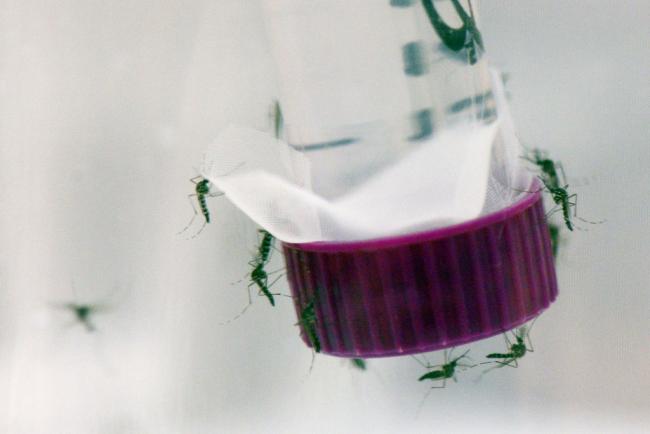
UN health agency foresees low to moderate risk of Zika virus spread in Europe
“The new evidence published on Wednesday tells us that there is a risk of spread of Zika virus disease in the European region and that this risk varies from country to country,” said Zsuzsanna Jakab, WHO Regional Director for Europe, in a press release.
“With this risk assessment, we at WHO want to inform and target preparedness work in each European country based on its level of risk. We call particularly on countries at higher risk to strengthen their national capacities and prioritize the activities that will prevent a large Zika outbreak,” she added.
Results of the risk assessment
WHO assessed the risk of an outbreak in Member States in the European region and Lichtenstein, based on the likelihood of Zika virus spread and existing national capacity to prevent or rapidly contain local transmission.
The assessment found that the likelihood of local Zika virus transmission, if no measures are taken to mitigate the threat, is moderate in 19 countries in the European region and high in limited geographical areas such as the island of Madeira and the north-eastern coast of the Black Sea.
This means that the areas in the region with the presence of Aedes aegypti, the primary Zika vector, have a high likelihood of local Zika virus transmission.
Specifically, 19 countries (33 per cent) have a moderate likelihood, owing to the presence of Aedes albopictus, a secondary Zika vector, while 36 countries (66 per cent) have a low, very low or no likelihood, owing to the absence of Aedes mosquitoes and/or suitable climatic conditions for their establishment.
Capacity and risk
The results of a questionnaire on capacity – how fast and well a country would respond to Zika virus spread – from 51 Member States in the region and Liechtenstein indicate that 41 countries (79 per cent) have good and very good capacity, although specific capacities varied substantially, WHO noted.
Combining the likelihood and capacity results provided the estimated level of risk of a Zika virus outbreak. The results show that across the WHO European region the risk is low to moderate during late spring and summer.
For countries with high and moderate likelihood of local Zika virus transmission, WHO recommends strengthening vector-control activities to prevent the introduction and spread of mosquitoes, and reduce their density (particularly for areas with Aedes aegypti); and equipping health professionals to detect local transmission of Zika virus early and to report the first case of local transmission, as well as complications from infections, within 24 hours of diagnosis.
The agency also recommends ensuring that the skills and capacity to test for Zika virus or protocols to ship blood samples abroad are in place, and encourages communities to reduce mosquito breeding sites.
“We stand ready to support European countries on the ground in case of Zika virus outbreaks,” said Nedret Emiroglu, Director of the Communicable Diseases and Health Security Division, WHO Regional Office for Europe. “Our support to countries in the region to prepare for and respond to health risks such as Zika is a key aspect of the reform of WHO's work in emergencies.”
To address the risk of Zika virus spread in the European region, WHO is scaling up efforts to provide guidance on vector control in coordination with other sectors; facilitate the shipment of samples to WHO reference laboratories or deliver diagnostic tools for local testing; and advise on risk communication and community engagement.
In addition, WHO will convene a regional consultation in Portugal from 22 to 24 June to examine the conclusions of the risk assessment and identify countries' needs, strengths and gaps in relation to preventing and responding to Zika virus disease.
Photo: IAEA/Dean Calma
Source: www.justearthnews.com
Support Our Journalism
We cannot do without you.. your contribution supports unbiased journalism
IBNS is not driven by any ism- not wokeism, not racism, not skewed secularism, not hyper right-wing or left liberal ideals, nor by any hardline religious beliefs or hyper nationalism. We want to serve you good old objective news, as they are. We do not judge or preach. We let people decide for themselves. We only try to present factual and well-sourced news.







